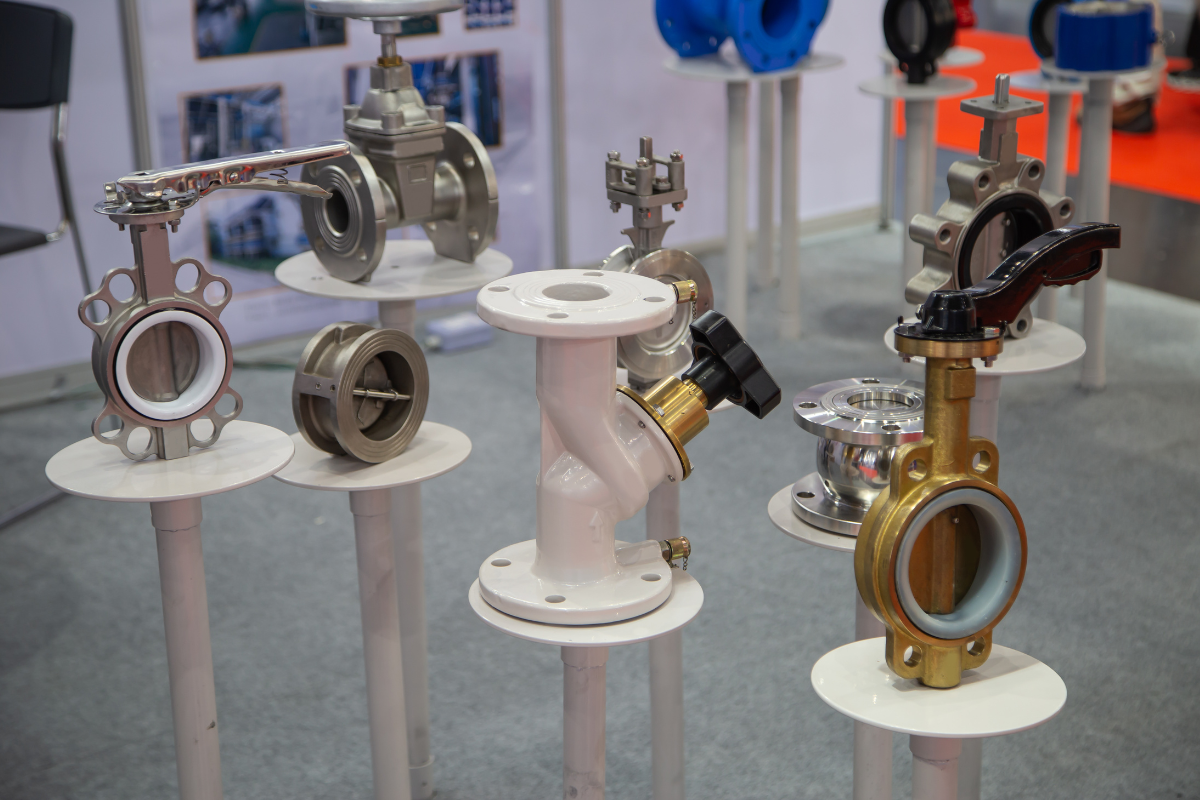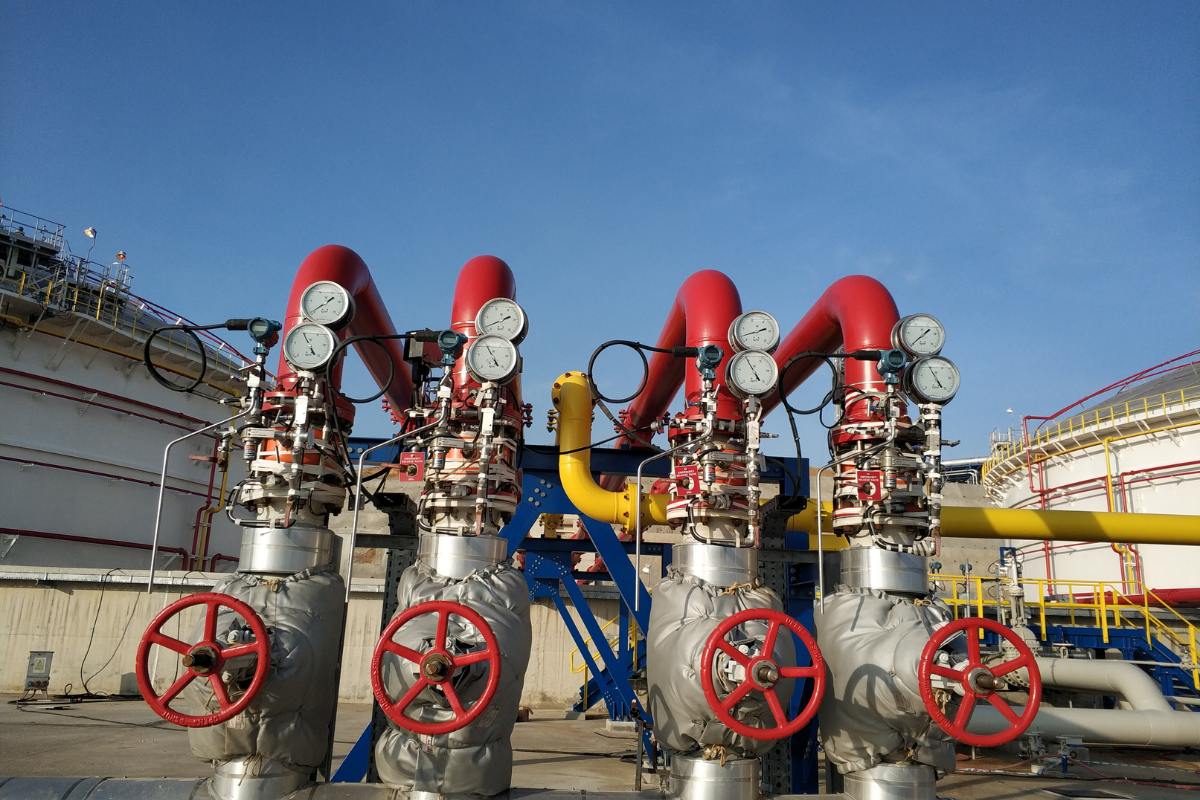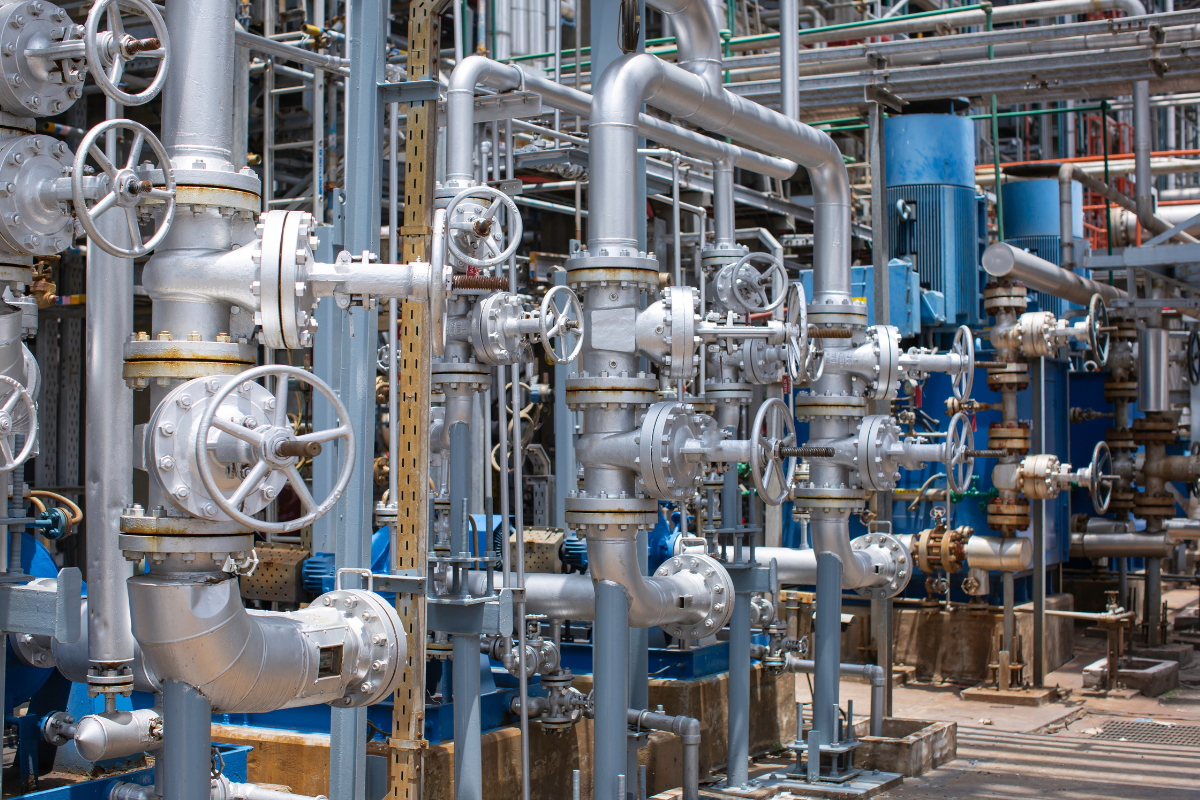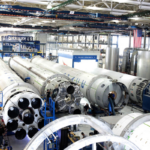In the intricate dance of manufacturing, industrial valves often stand as unsung heroes, silently regulating flows, controlling pressures, and ensuring safety across various processes.
These unsung heroes play a pivotal role in optimizing operations within manufacturing plants, where efficiency, productivity, and safety are paramount concerns.
Post Contents
Types Of Industrial Valves
Industrial valves come in various types, each designed to serve specific functions and applications.

They can be classified based on functionality, such as control valves, shut-off valves, and safety valves.
Control valves regulate the flow of fluids or gases by modulating the opening or closing of the valve, allowing for precise control over process parameters.
Shut-off valves, on the other hand, provide a means to completely stop the flow within a pipeline, serving as emergency isolation devices or for maintenance purposes.
Safety valves act as pressure relief devices, automatically releasing excess pressure to prevent equipment damage or catastrophic failures.
Additionally, industrial valves can be categorized based on design, including globe valves, gate valves, ball valves, butterfly valves, plug valves, and diaphragm valves.
Globe valves feature a globe-shaped body with a movable disk (plug) that regulates flow by moving up and down.
Gate valves employ a gate or wedge-shaped disk to control flow, typically used in fully open or fully closed positions.
Ball valves utilize a spherical closure element to control flow, offering quick and reliable operation.
Butterfly valves feature a disc-shaped closure element mounted on a rotating shaft, providing efficient flow control with minimal pressure drop.
Plug valves consist of a cylindrical or conical plug that controls flow by rotating within the valve body.
Diaphragm valves use a flexible diaphragm to regulate flow, making them suitable for handling corrosive or abrasive fluids. Check out valveman.com for more info.
Importance of Industrial Valves In Manufacturing Plants
The significance of industrial valves in manufacturing plants cannot be overstated.
These valves play a crucial role in regulating flow rates, controlling pressures, preventing backflow, ensuring safety, and enhancing overall efficiency and productivity.
In chemical processing plants, for example, industrial valves are used to control the flow of raw materials, regulate reaction temperatures, and ensure the safe handling of hazardous chemicals.
In oil refineries, valves are employed to control the flow of crude oil, refine petroleum products, and maintain operational safety.
In power generation facilities, valves are integral to controlling steam flow, regulating turbine speed, and ensuring system reliability.
Industrial valves are also essential for maintaining process integrity and product quality.
By precisely controlling flow rates and pressures, valves help manufacturers achieve consistent product specifications and minimize waste.
Additionally, industrial valves play a critical role in ensuring workplace safety by preventing accidents, controlling hazardous materials, and facilitating emergency shutdown procedures.
Versatile Applications of Industrial Valves
Industrial valves find versatile applications across a wide range of industries and processes within manufacturing plants.

They are instrumental in fluid handling processes, including the handling of liquids, gases, and multiphase mixtures.
For instance, in water treatment plants, industrial valves are used to control the flow of water, regulate chemical dosing, and manage filtration processes.
In pharmaceutical manufacturing, valves play a crucial role in controlling the flow of ingredients, regulating reaction conditions, and ensuring product purity.
Moreover, industrial valves are vital for process control and optimization, facilitating precise control over flow rates, pressure levels, and temperature conditions.
Control valves, in particular, enable manufacturers to adjust process parameters in real-time, optimizing production efficiency and minimizing energy consumption.
Safety valves provide essential overpressure protection, safeguarding equipment and personnel from potential hazards.
In addition, industrial valves play a critical role in ensuring safety during emergency situations and facilitating maintenance and repair operations.
Shut-off valves and emergency isolation valves allow for rapid shutdown of processes in case of emergencies, preventing the escalation of incidents and minimizing damage.
Maintenance valves and bypass valves enable safe isolation of equipment for maintenance activities, reducing downtime and enhancing operational reliability.
Best Practices For Optimizing Industrial Valve Operations
Optimizing industrial valve operations requires adherence to best practices. Regular maintenance and inspection are essential for ensuring the proper functioning of valves and preventing unexpected failures.
Routine checks for leaks, corrosion, and wear ensure early detection of potential issues, allowing for timely repairs or replacements.
Proper selection and sizing of valves based on process requirements are also critical for achieving optimal performance.
Factors such as flow rate, pressure drop, temperature, and fluid properties must be carefully considered when choosing the appropriate valve type and size.
Consulting with valve manufacturers or industry experts can help ensure the selection of valves that best meet the needs of specific applications.
Integrating industrial valves with automation and control systems enables remote monitoring and control, enhancing operational efficiency.
Advanced control strategies, such as PID (Proportional-Integral-Derivative) control, allow for precise adjustment of valve positions based on real-time process data.
This integration also facilitates predictive maintenance, where sensor data and analytics are used to predict potential valve failures before they occur, minimizing downtime and reducing maintenance costs.
Conclusion
Industrial valves are indispensable components of manufacturing plants, playing a vital role in optimizing operations, ensuring safety, and enhancing efficiency.
By understanding the diverse applications and adhering to best practices, manufacturers can leverage the full potential of industrial valves to achieve their operational objectives.
As we navigate through technological advancements and evolving industry trends, the role of industrial valves in shaping the future of manufacturing remains paramount.






























